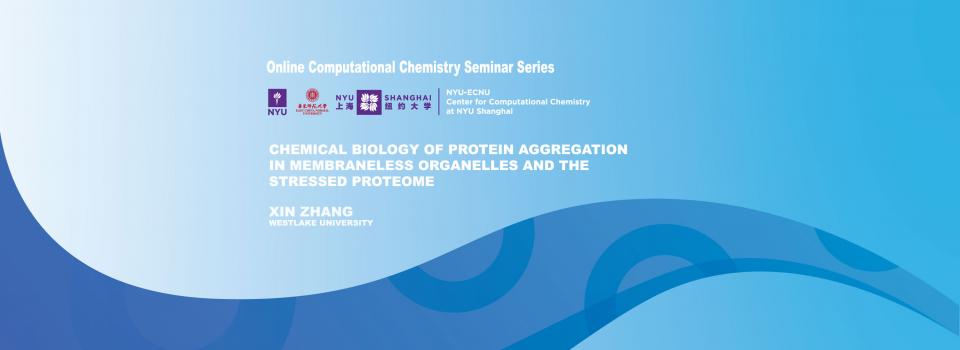
Abstract
Protein aggregation is a multiple step process that involves misfolded soluble and insoluble aggregates. These molecular events have been associated with a variety of diseases that are termed as protein misfolding diseases. To meet this need, I will present a novel AggTag (Aggregation Tag) imaging method and two types of fluorogenic AggTag small molecule probes, with a goal to directly monitor the entire protein aggregation process in live cells, in particular the intermediate misfolded oligomers. The AggTag method and probes have been applied to reveal folding states of RNA-binding proteins in membraneless granules during their formation and maturation, providing new mechanisms underlying how cells use these granules to manage proteins in stressed conditions. This work potentiates future studies on chemical biology of protein aggregation in various types of membraneless organelles and stressed proteome.
Biography
Xin Zhang is the Professor of Chemistry and Cell Biology at the Westlake University, Hangzhou. Prior to joining the faculty at Westlake in 2021, Zhang was the Paul & Mildred Berg Early Career Professor and Associate Professor of Chemistry and of Biochemistry and Molecular Biology at the Pennsylvania State University. Zhang was a Helen Hay Whitney Postdoctoral Fellow at the Scripps Research Institute, California. He earned a doctoral degree at the California Institute of Technology, a master's degree at the Dalian Institute of Chemical Physics of the Chinese Academy of Sciences, and a bachelor's degree at the University of Science and Technology of China. Zhang’s independent work has received multiple honors and awards, including Priestley Prize for undergraduate teaching in chemistry, Kavli Fellow, CAPA distinguished junior faculty award, NSF CAREER award, NIGMS MIRA, Pew Scholar in the Biomedical Sciences, Scialog Fellowship, Sloan Research Fellowship, the Lloyd and Dottie Huck Early Career Award, and the Burroughs Wellcome Fund Career Award at the Scientific Interface.
Seminar Series by the NYU-ECNU Center for Computational Chemistry at NYU Shanghai


